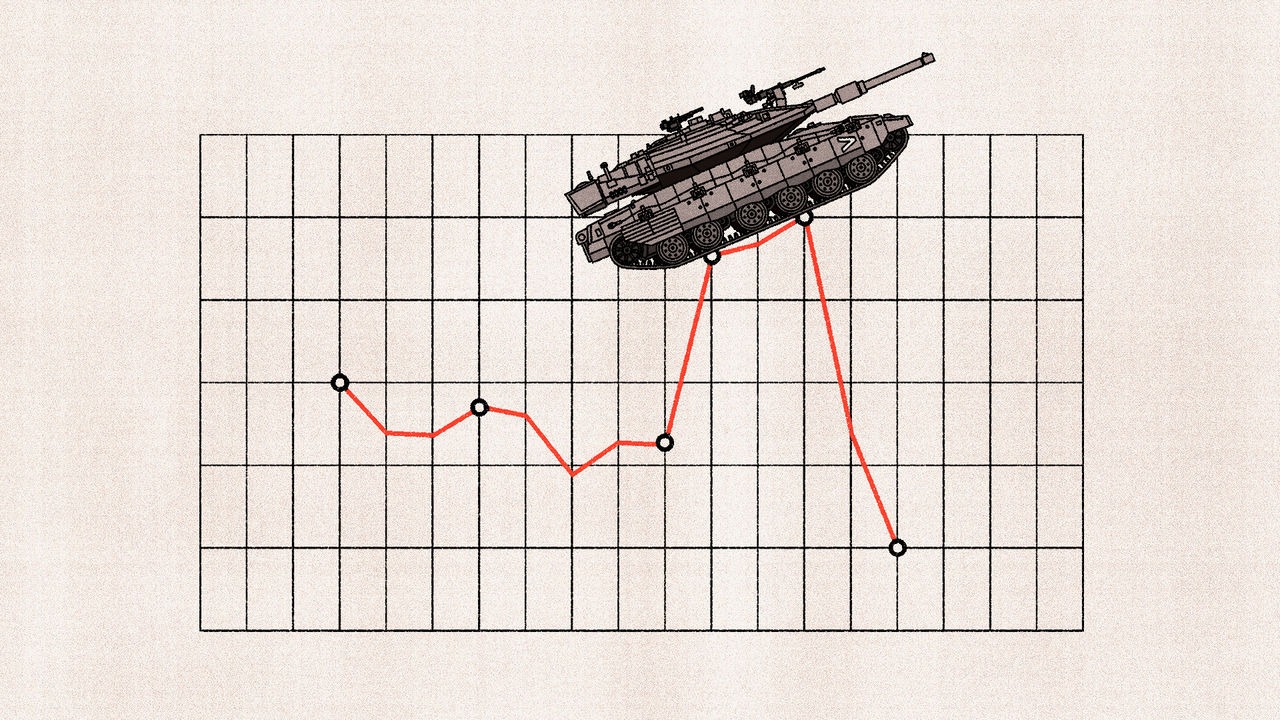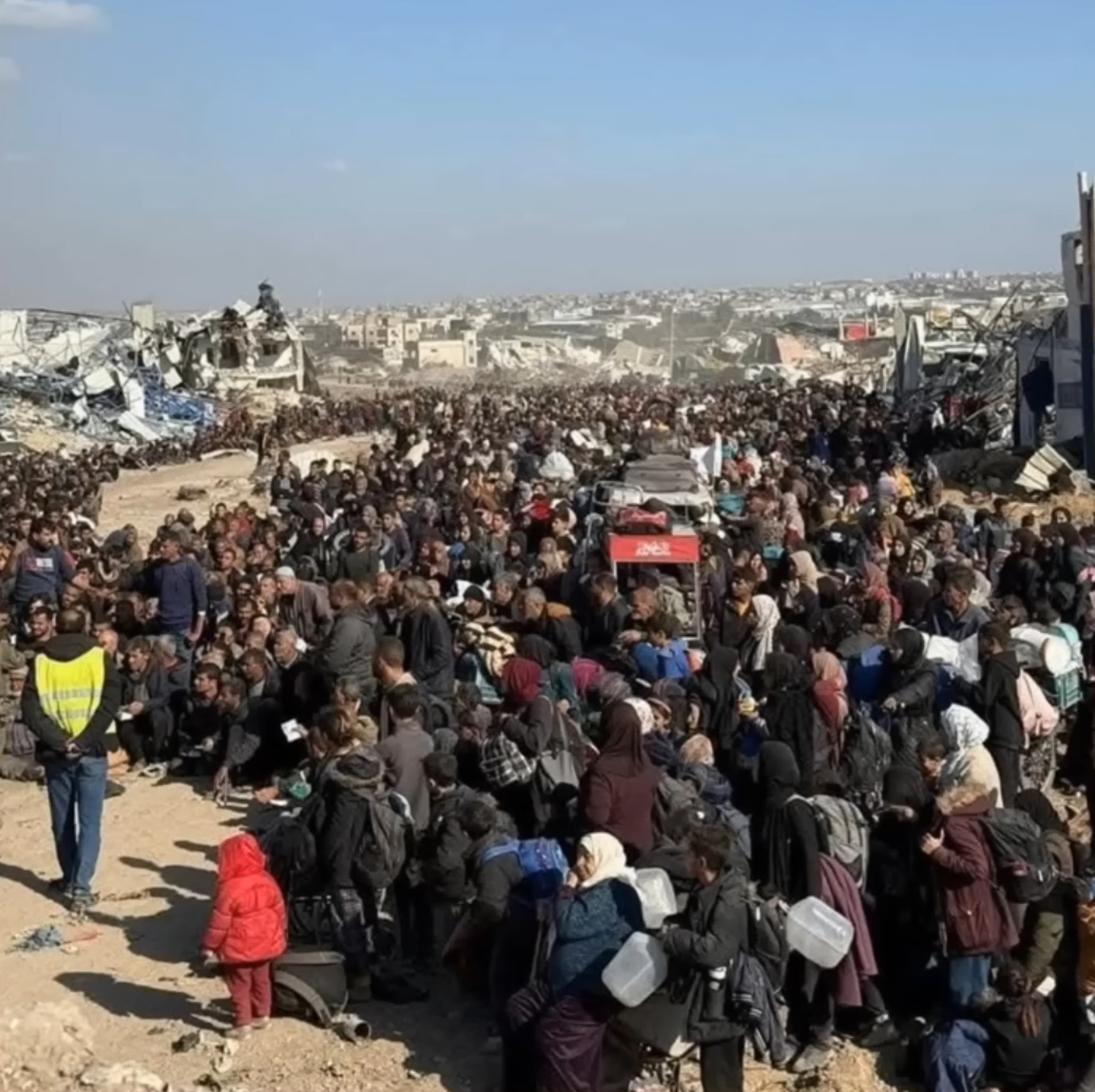The Zionist project of Israel appears to be unable to shake off an economic crisis of unprecedented proportions, that is worsening by the day. Corporate withdrawals, credit downgrades, and systemic challenges highlight its bleak future…
Every week, Israel seems to get worse news regarding its financial standing in the world.
This week, Norway’s sovereign wealth fund sold all its shares in the Israeli telecom giant Bezeq, citing the company’s presence in illegal West Bank settlements.
“The company (Bezeq), through its physical presence and provision of telecom services to Israeli settlements in the West Bank, is helping to facilitate the maintenance and expansion of these settlements,” the Norwegian’s funds ethics council stated in its recommendation for the divestment.
“The company is contributing to the violation of international law,” it said.
In 2024, Israel is experiencing a wide and profound economic and political collapse, driven by its military campaign in Gaza and the resulting international backlash.
Once celebrated as a technological and economic powerhouse, the country now faces widespread corporate withdrawals, financial divestments, and a significant erosion of global trust. The economic fallout, coupled with growing public disillusionment, suggests a nation on the brink of systemic failure.
Corporate Withdrawals and Financial Divestments
The repercussions of Israel’s policies have reverberated across its economy, prompting major corporations and financial institutions to reassess their ties with the country.
Samsung Next:
In April 2024, Samsung Next, the venture capital arm of Samsung Electronics, shut down its Tel Aviv office after a decade, citing unfavorable business conditions and growing instability.
Intel Corporation:
In June 2024, Intel canceled plans for a $25 billion factory expansion in Israel. This decision marked a significant loss for Israel’s high-tech sector and a major victory for the Boycott, Divestment, and Sanctions (BDS) movement.
Barclays Bank:
In August 2024, Barclays withdrew from Israeli government bond auctions, responding to international pressure over its ties to Israel’s defense industry and activities in the occupied Palestinian territories.
Ireland Strategic Investment Fund (ISIF):
ISIF divested from six Israeli companies in April 2024, citing ethical concerns tied to their operations in occupied Palestinian territories.
Natural Resources and Energy Supplies
Colombia, Israel’s largest coal supplier, suspended shipments in protest against the war in Gaza. The disruption poses a significant threat to Israel’s energy infrastructure, particularly its reliance on coal for power generation.
Financial Divestments by Sovereign Wealth and Pension Funds
Sovereign wealth funds and pension funds have also taken steps to distance themselves from Israeli assets:
Norway’s Wealth Fund:
The world’s largest sovereign wealth fund, valued at approximately $1.8 trillion, divested from Israel’s largest telecom provider, Bezeq, citing the company’s provision of services to settlements in the occupied West Bank.
European Pension Funds:
Norway’s largest pension fund, KLP, and other European institutions have previously divested from Israeli companies tied to settlement activities. These moves highlight a growing trend of financial institutions scrutinizing their ties to Israel amid heightened ethical concerns.
Credit Downgrades: A Grim Financial Outlook
Israel’s creditworthiness has also taken a hit, as major rating agencies issue downgrades reflecting the country’s worsening economic and geopolitical situation:
Fitch Ratings:
Downgraded Israel’s credit rating from ‘A+’ to ‘A’ in August 2024, citing prolonged conflict and economic uncertainty.
Moody’s Investors Service:
Lowered Israel’s rating from ‘A2’ to ‘Baa1,’ reflecting concerns about fiscal challenges and geopolitical instability.
S&P Global Ratings:
Cut Israel’s sovereign debt rating, warning of the significant risks posed by the ongoing war and declining economic prospects.
Economic Collapse in Numbers
The data paints a dire picture of Israel’s economic trajectory:
Over 46,000 businesses have gone bankrupt since October 2023.
Tourism has come to a standstill, eliminating a key source of revenue.
Foreign direct investment (FDI) dropped by 60% in the first quarter of 2024 and shows no signs of recovery.
Israeli bonds now trade near “junk bond” levels.
An estimated 24% of Israeli tech companies have relocated at least part of their operations abroad.
Systemic Challenges to the Means of Production
Israel’s economic crisis extends beyond financial metrics, impacting its productive capacity and infrastructure:
Energy Vulnerabilities
The suspension of coal imports by Colombia has strained Israel’s power grid, which heavily relies on coal to supplement its natural gas supply. Prolonged blackouts could cripple the tech sector and essential services.
High-Tech Sector Exodus
International tech companies are closing branches in Israel, and the emigration of skilled professionals is accelerating. Prof. Dan Ben David warned that the Israeli economy relies on 300,000 highly skilled workers. “Once a significant portion of these people leaves,” he cautioned, “we won’t become a third-world country—we just won’t be anymore.”
Academic and Research Decline
Collaborative research with foreign universities has sharply declined, further isolating Israeli academics and reducing opportunities for innovation.
The End of “Startup Nation”
Israel’s reputation as a high-tech powerhouse is unraveling. Even Google has expressed interest in acquiring Israeli cybersecurity company Wiz, founded by former intelligence officers who are reportedly eager to sell and leave the country. The term “Startup Nation” has been replaced by “Shutdown Nation,” a slogan embraced even by Israeli protestors critical of their government.
A Crisis of Confidence in the Zionist Project
The economic collapse is reshaping public and international perspectives on Israel’s long-term viability.
Economic Predictions:
Economists Jugene Kendel and Ron Tzur have predicted that Israel may not survive to its 100th anniversary, citing systemic challenges and unsustainable policies. Their report, though classified, has fueled public debate.
Public Disillusionment:
Prominent historians, including two Zionists and one anti-Zionist, have declared that the Zionist project is reaching its end. Public sentiment is increasingly divided, with many Israelis exploring emigration or advocating for systemic political change.
Migration Trends:
Although exact numbers are unclear, anecdotal evidence suggests a significant number of Israelis are leaving the country, seeking opportunities abroad amid growing uncertainty.
The Economic Costs of War
Israel’s ongoing military campaign in Gaza has had devastating humanitarian and economic consequences. Over 40,000 Palestinians, including 15,000 children, have been killed, with the UN estimating that 70% of Gaza’s housing has been destroyed. The war has also decimated Israel’s international reputation, leaving it increasingly isolated.
Israel’s economy, once a global success story, is now facing unprecedented challenges. From corporate withdrawals and credit downgrades to the erosion of public trust, the nation’s trajectory appears increasingly uncertain. While some argue that systemic political change is the only path to recovery, others fear that the current leadership’s policies will only exacerbate the crisis.




